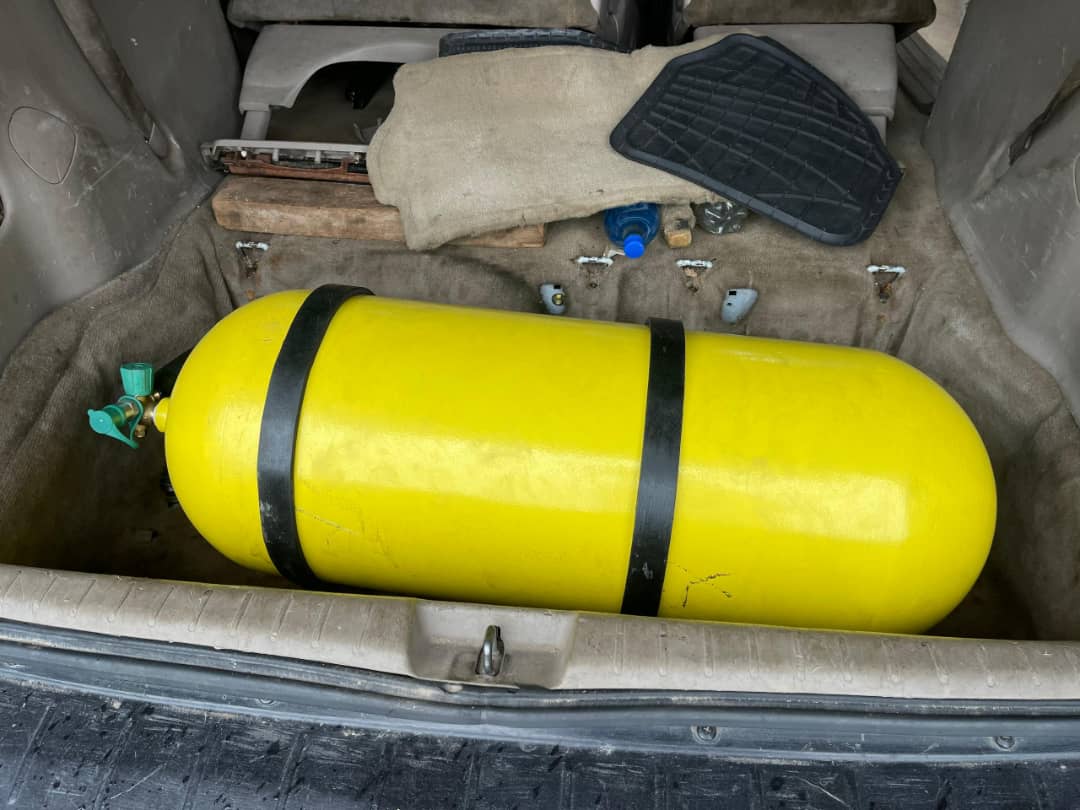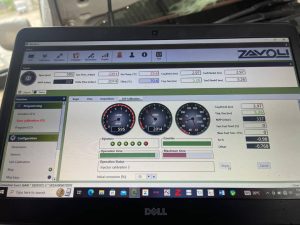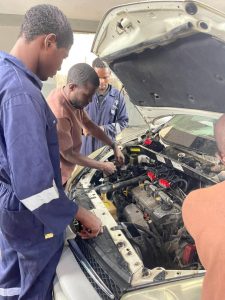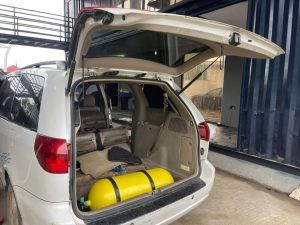
Maria Yusuf xrays Nigeria’s drive for cost effective and environmentally friendly fuel as vehicle owners ponder between staying with high cost of PMS and converting to CNG
Nigeria’s energy and transport sectors are experiencing a renewed focus on Compressed Natural Gas (CNG) as a sustainable alternative fuel. Initially introduced in 2010 by NIPCO with its pioneering CNG facility in Benin City, the adoption of CNG for vehicular and industrial uses was sluggish.

However, interest in CNG has recently witnessed a sudden increase, driven by its potential to provide a cleaner, more cost-effective, and domestically available energy solution.
This is further by the rising price of PMS from N195 as at May 2023 to N1,030 showing an increase of over 500 percent in one year.
President Tinubu’s 2023 petrol subsidy removal and Nigeria’s oil price volatility have reportedly made CNG an attractive, cost-effective, and sustainable solution for Nigeria’s transport sector.

Though some vehicle owners are undecided about the conversation, some have either chosen to convert but slowed down by the cost which range between N1m and N1.7m in Lagos while others have decided to stay on their factory fitted PMS configuration.
Viewed as one of Nigerian government step towards reducing carbon emissions and promoting sustainable development, the government is partnering with stakeholders in the transportation and energy sectors. Companies like Dana Motors, Portland Training Center , KIA Motors , Innoson Motors, Lanre Shittu Motors, A. G. Leventis, DAPPMAN, Kojo Motors, Autogig and NNPCL to mention a few are collaborating with the government to achieve this goal.
Nigeria’s transition to Compressed Natural Gas (CNG) is anticipated to significantly reduce the nation’s carbon emissions, thereby aligning with its international climate obligations and supporting the attainment of the United Nations’ Sustainable Development Goals (SDGs).
Although, CNG has been publicized as a game- changer for Nigeria’s transport sector and despite government efforts and numerous benefits, the transition is facing significant challenges, like cost of conversion, limited conversion centers, lack of public awareness and limited fueling stations.

In a virtual interview with Mr Obalanlege Joseph the CNG coordinator at Autogig International Resources Limited Gbagada, JournalNG was able to get more insight about the category of cars needed , the process and duration of conversion of PMS cars to CNG, the amount involved and also some safety precautions users of CNG vehicles should adhere to at any point in time he said
” Autogig is into retrofitting of PMS cars to CNG and we have been able to convert one government owned car for free and five privately owned car in our center at a cost. Conversion usually cost around N1M to N1.7M and it differs for all cars . We consider the number of cylinders needed and the model of the car.
” For conversion in Autogig there’s a process we follow and it starts with inspection, mapping, scheduling, retrofitting, programming and lastly test driving and this process may take up to five hours or three days depending on the type of vehicle we are working on.
” As an expert on CNG conversion what i would advise users to take note of is the cylinder, it shouldn’t be tampered with after installation. It is very easy to revert back to PMS just like i said earlier we are only modifying the existing structure of the car like the intake manifold, the frame where the cylinder is mounted on, the inlep manifold and the wiring looping when connecting to the electronic control unit”. Mr Joseph said.
Upon arrival at Portland Training Center at Ojota one of the six centers selected by the Presidential Compressed Natural Gas Initiative (PCNGi) our reporter saw how conversion is carried out.
An official of the center, Mr Andrew a CNG coordinator gave a breakdown of how conversion is done at Portland. He said
” Conversion of PMS Vehicles to CNG is what we carry out daily at Portland. Since the center was listed by the federal government , people have been bringing their vehicles to us and five to six vehicles are converted daily. We Charge up to a million naira for privately owned vehicles for accessories and services rendered.
Mr Andrew who gave more details on the performance level of CNG vehicle told our reporter that CNG powered vehicles can travel fast and as far as cars using PMS.
” CNG vehicles can perform excellently well like cars using PMS depending on the cylinder installed. However we install cylinders based on the capacity of the vehicle let’s take heavy duty trucks as an example some of them have a single cylinder that can help them travel from Lagos to Kaduna without having to refuel along the road.

Speaking further, while emphasizing on the stereotype surrounding the CNG initiative in Nigeria he made it known that having a cylinder filled with gas in a car is very safe and what a user should watch out for is mainly leakage to avoid explosion.

” Instructions should be taken seriously, CNG has it own rules and regulations guiding it but it is user friendly. It’s made up of pure metal and we have four different types of CNG cylinders. People should know that it is very easy to revert back to PMS if a user gets tired of using CNG, we just have to remove what has been installed in the car”
A visit to Lanre Shittu Motors, kojo Motors and KIA motors by our reporter to get more information on CNG conversion was yielded no result as they were not available to give details on the conversion at the time of writing this report.
The country is yet to evaluate a comprehensive user experience as most users of converted cars are yet to come up with comparative feedbacks about the alternative fuel even when experts position points to some disadvantages of the option
Identified Disadvantages of Converting Petrol Cars to CNG ?
Coming as an environmentally friendly option, CNG powered vehicles have been reported to come with some demerits ranging from cost of conversion, functionality of the vehicles and the fear of explosion.
Decreased Efficiency and Strength
This is one of the disadvantages of converting petrol cars to CNG cars. The possible loss of power and performance when switching from petrol to CNG is a major disadvantage.
Compressed natural gas (CNG) has a lower energy density than gasoline. As such, cars powered by CNG may have less horsepower.
For drivers who value performance, this power loss may be a major problem and have an impact on the whole driving experience.
Minimal Range of Driving
When compared to their gasoline-powered equivalents, CNG vehicles frequently have a shorter driving range.
As a result of its lower energy density, CNG necessitates larger storage tanks. This can take up valuable interior space and decrease the amount of trunk space that is accessible.
For drivers, having to stop more frequently for refueling can be annoying, particularly on lengthy trips when petrol stations may be few.
High Costs of Conversion
Petrol Cars to CNG Cars?
This is also one of the disadvantages of converting petrol cars to CNG cars. The initial cost of converting a gasoline-powered vehicle to run on compressed natural gas is high.
It can be expensive to convert the car with CNG-compatible parts, like a high-pressure tank and fuel system adjustments.
Even while there can be long-term fuel cost reductions, some prospective users might be discouraged by the conversion’s upfront costs.
Limited Facilities
Refueling with CNG is not as well-established as it is with petrol. Even if the quantity of CNG refueling stations is steadily rising, it is still far fewer than that of petrol stations.
Owners of CNG vehicles may find this restriction difficult, particularly in areas with limited access to refueling facilities.
Maintenance Issues
This is one of the disadvantages of converting petrol cars to CNG . Vehicles with CNG systems need specific upkeep and servicing. CNG operates at high pressure, as such, some parts may experience increased wear and tear, calling for routine maintenance and inspections by qualified specialists.
In certain places, it may be difficult to find certified mechanics with CNG system knowledge. This could cause maintenance problems for owners of CNG vehicles.
Environmental Issues
This is one of the disadvantages of converting petrol cars to CNG cars. Even though CNG is typically thought of as a greener fuel than petrol, there are environmental effects associated with the extraction and delivery of this fuel.
The main ingredient of natural gas, methane, is a strong greenhouse gas. Some of the environmental benefits associated with CNG vehicles may be countered by methane leaks that occur during the production and delivery of natural gas.
Although switching from petrol to compressed natural gas (CNG) is a positive step towards a more sustainable future, it’s important to recognize the drawbacks of this conversion.
Potential adopters must carefully consider the advantages and disadvantages before making the switch. And this is from lower performance and a shorter driving range to conversion costs and infrastructural difficulties.
Some of these disadvantages might be lessened as infrastructure and technology develop, making CNG a more appealing and feasible choice for drivers who care about the environment.











